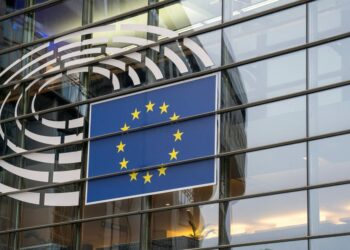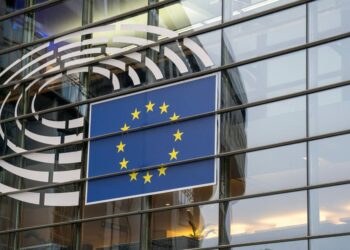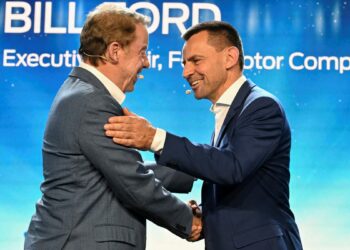By
Lisa Homel
The victory of Geert Wilders’s far-right party in November’s Dutch elections sent shockwaves through Europe. Yet it will be a long time before we know what the next Dutch government will look like—the less polarizing Mark Rutte took well over two hundred days to form his last two governments, and Wilders will very likely have to overcome more obstacles than Rutte ever did.
It is unclear whether the euro-skeptic, anti-migration Party for Freedom’s (PVV) victory can be best attributed to a protest vote, to center-right People’s Party for Freedom and Democracy (VVD) leader Dilan Yeşilgöz “legitimizing” his candidacy by raising immigration as an issue in the campaign, or to a favorable reaction to Wilders’s (slightly) toned-down rhetoric in the final weeks of the campaign. Regardless of those reasons, the wide-ranging vote distribution—which saw the newly formed centrist Christian Democratic New Social Contract, or NSC, party earn fourth place—and the presence of a number of marginal parties representing niche issues reveal a general discontent with the VVD-run status quo and signal a readiness to give new leadership a chance.
There has already been considerable speculation on potential coalitions. The magic number to form a government is seventy-six seats out of the 150-seat house. Final election results confirm that Wilders’s PVV won thirty-seven seats, the center-left GroenLinks-PvdA party—led by former European Commission Executive Vice President Frans Timmermans—came in second with twenty-five seats, and Rutte’s VVD earned twenty-four seats. NSC clinched twenty seats in its first election and will likely be the kingmaker in any eventual coalition. The socially liberal Dem66 (D66) party and the right-wing populist Farmer-Citizen Movement (BBB) earned nine and seven seats, respectively, and one of these two parties will likely push any possible coalition over the seventy-six-seat threshold.
The road to seventy-six seats will not be straightforward. Wilders has some serious rebranding to do to become palatable to potential partners. In a possible acknowledgment of that reality, Wilders tempered some of his more strident anti-Islam rhetoric in the final days of the election and since. This follows a similar pattern seen from Italy’s Giorgia Meloni when she moved toward the center on a number of foreign policy positions following her election as prime minister.
A Wilders premiership would be quite the whiplash at the EU level from that of Rutte.
More than likely, despite Wilders’s campaign rhetoric (and years of backbench bluster from the comfortable position of opposition), coalition partners could force the PVV leader to soften his stance on aid to Ukraine and membership in the European Union (EU), both of which remain popular among the Dutch public. But the next government’s position on climate, health care, and immigration policy are bigger question marks.
Wilders has made it clear that the coalition he wants is with VVD, NSC, and BBB, but he has already faced pushback from two of his preferred partners. VVD has announced it won’t participate in a PVV government, preferring to stay on the opposition benches—although it said it wouldn’t block the formation of such a government and would be open to collaboration on a case-by-case basis. Having spent thirteen years as the governing party, VVD might gamble and stay in the opposition, hoping it can let less-experienced parties fumble. And after initial outreach, NSC’s Pieter Omtzigt has indicated that he’s not ready to commit to a Wilders government, citing disagreement with the more extreme elements of the PVV manifesto. Nevertheless, with Wilders already on his second verkenner—or “scout” tapped to test the waters for coalition partners—after the first quit over fraud allegations, negotiations are only just beginning, and Wilders has already left the door open to forming a minority government.
On the European front, the Netherlands might feel the loss of Rutte, Europe’s elder statesman and the leader responsible for taking the Netherlands from the biggest of the smalls to the smallest of the bigs. Under Rutte, the Netherlands became a critical player in shaping European support for Ukraine and linking EU post-pandemic stimulus funds to rule-of-law benchmarks; the country also gained prominence as the unofficial leader of the Frugal Four, a bloc of fiscally conservative countries in the EU that advocate for tight fiscal policies.
A Wilders premiership would be quite the whiplash at the EU level from that of Rutte, who, for example, never shied away from challenging Hungarian Prime Minister Viktor Orbán on anti-LGBTQI+ laws and rule-of-law practices. Meanwhile, Wilders has for years maintained ties with Hungary and cultivated a purportedly friendly relationship with Orbán, who, along with a number of Europe’s far-right politicians, congratulated Wilders after the election. With a number of important decisions on the docket for the EU—including the ongoing enlargement conversations, EU reform, and aid for Ukraine—another far-right leader at European Council meetings could really upend the upcoming debates.
The election has passed, but the political maneuvering is just beginning.
Lisa Homel is an assistant director of the Atlantic Council’s Europe Center where she supports the center’s work on France, Germany, the Western Balkans, and Central and Eastern Europe.
Further reading
Tue, Sep 19, 2023
What would it take to hold elections in Ukraine?
UkraineAlert
By
Peter Erben, Gio Kobakhidze
Calls for elections in Ukraine are premature and do not take into consideration the extremely unfavorable wartime conditions that make it virtually impossible to stage a free, fair, and safe vote, write Peter Erben and Gio Kobakhidze.
Image: Dutch far-right politician and leader of the PVV party Geert Wilders gives a first reaction as he meets with the press on the day Dutch parties’ lead candidates met for the first time after elections to begin coalition talks in The Hague, Netherlands, November 24, 2023. REUTERS/Piroschka van de Wouw
Source link : https://www.atlanticcouncil.org/blogs/new-atlanticist/the-shocking-dutch-election-is-done-the-political-maneuvering-is-just-beginning/
Author :
Publish date : 2023-12-04 08:00:00
Copyright for syndicated content belongs to the linked Source.







